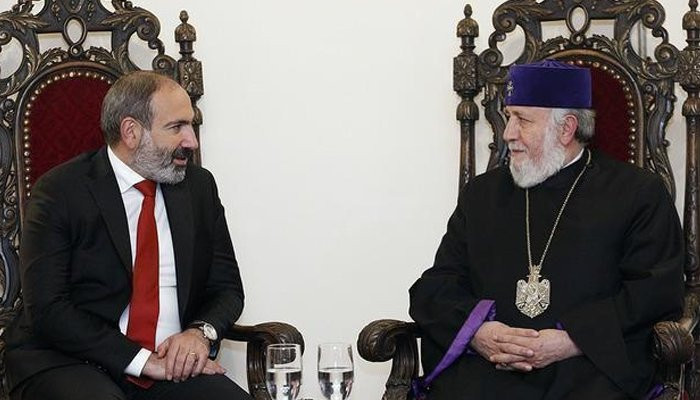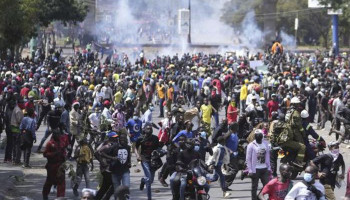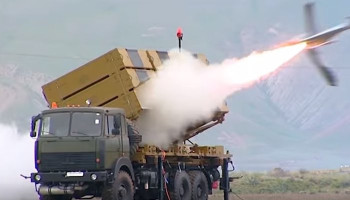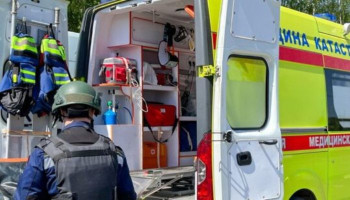Catholicos Karekin II continued to call for Prime Minister Pashinyan’s resignation։ Report on International Religious Freedom
 The constitution states that everyone has freedom of thought, conscience, and religion. It recognizes the Armenian Apostolic Church (AAC) as the national church and preserver of national identity but also establishes separation of religious organizations and the state. The law prohibits but does not define proselytism, which may be interpreted as forced conversion. It prohibits “obstruction of the right to exercise freedom of religion” as well as hate speech or inciting violence against an individual or group based on religion; punishments include fines, community service, and imprisonment. During the 2023 school year, authorities began to gradually remove the course on the history of the AAC from the mandatory school curriculum, instead incorporating the relevant historical content in the broader curriculum on Armenian studies. This was despite the AAC’s objections. Representatives of the Yezidi community welcomed the removal of the course, as they said Yezidi children were indoctrinated into the AAC when the course was mandatory. Government and AAC officials, including AAC leader Catholicos Karekin II and Prime Minister Nikol Pashinyan, made public statements critical of each other concerning the government’s handling of the Nagorno-Karabakh conflict and the AAC’s involvement in politics. In October and November, unknown individuals vandalized the only Jewish synagogue in Yerevan; at year’s end, the government continued to investigate possible foreign involvement in the incidents. Jehovah’s Witnesses reported several instances of verbal and physical abuse and attacks on public stands displaying their religious materials. On June 2-4, protesters violently disrupted a large regional religious meeting of Jehovah’s Witnesses in Yerevan while police looked on but did not intervene; police subsequently provided increased security for another Jehovah’s Witnesses event and initiated criminal proceedings against the perpetrators of the violence during the June 2-4 event. According to religious experts, while mainstream media was mostly neutral or less discriminatory towards religious organizations during the year, social media and tabloid press continued to publish pieces that religious groups described as hate speech. According to some Jewish community representatives, antisemitic conspiracy theories spread among domestic fringe groups as well as online in connection with Azerbaijan’s September 19-20 military operation in Nagorno-Karabakh, during which Azerbaijan used Israeli weapons. Some AAC clergy members reportedly continued to distribute social media videos and gave interviews in which they called religious minority groups “sects” (i.e., cults) and described them as national security threats. According to one targeted evangelical group, while these actions reflected the attitudes of individual clergy members and not the AAC as an institution, the ongoing occurrence of such social media posts and interviews indicated that AAC leadership was turning a blind eye to those actions. Anonymous social media users continued to vilify the evangelical Word of Life Church online. The U.S. Ambassador and other embassy officials continued to promote religious tolerance, respect for religious minorities, and interfaith dialogue during meetings with government officials, including from the Ministry of Foreign Affairs. The Ambassador and other embassy officials regularly met with the AAC and minority religious groups to discuss the state of religious freedom in the country. In March, the Ambassador met with AAC Catholicos Karekin II to discuss the preservation of religious and cultural sites in Nagorno-Karabakh. Embassy officials continued to discuss with civil society representatives the impact of the Nagorno-Karabakh conflict on religious groups and religious sites of significance to Armenian communities and engaged with Yerevan’s Jewish community leaders about the impact of attacks on the Mordachay Navi Synagogue on the community.
|
















